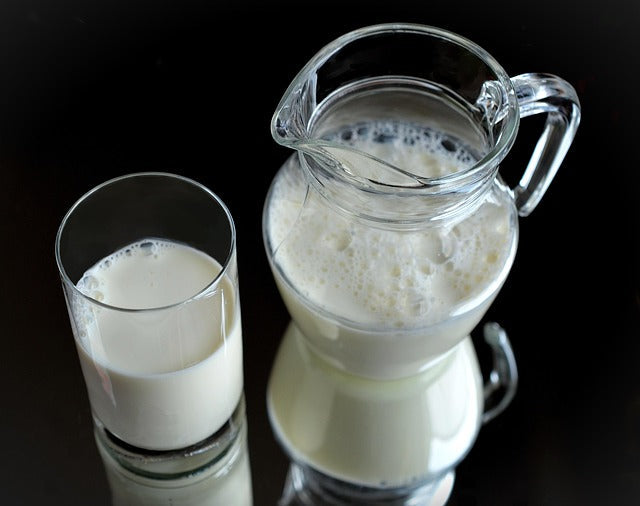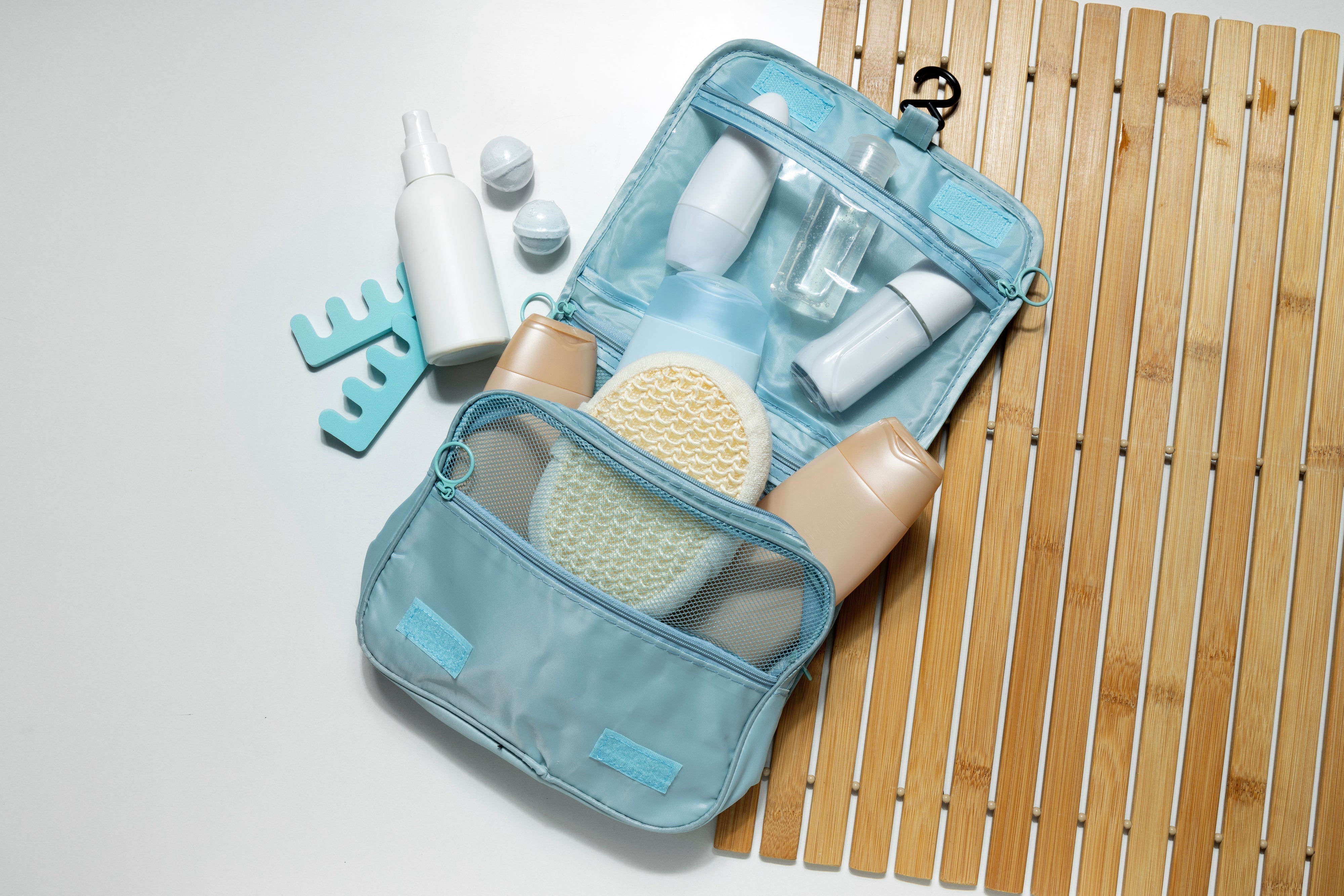How to Tell If Your Skin Barrier Is Damaged—and What to Do About It

Your skin barrier plays a vital role in maintaining skin health, hydration, and protection against environmental aggressors. When it’s damaged, the consequences can show up fast—and they’re not just cosmetic. Understanding how to spot a compromised skin barrier and knowing how to repair it are key to restoring balance and resilience to your skin.
Key Points
-
Your skin barrier is a protective layer that keeps moisture in and irritants out.
-
When it’s compromised, you may notice dryness, stinging, breakouts, and inflammation.
-
Repairing it involves gentle care, the right ingredients, and sometimes professional help.
What Exactly is the Skin Barrier
Think of the skin barrier as your body’s built-in shield.
Scientifically known as the stratum corneum, it’s the outermost layer of your skin that locks in moisture and prevents irritants, bacteria, and allergens from getting in. It consists of skin cells held together by lipids, much like bricks and mortar. When intact, your skin stays supple, hydrated, and clear. When it’s damaged, problems begin to surface—literally.
Signs of a Damaged Skin Barrier
A compromised skin barrier doesn’t always look the same, but there are common red flags to look out for.
If you’re experiencing multiple of the symptoms below, your barrier might need a little TLC.
1. Dehydrated Skin

Image by goodrx.com
Flaky texture, dullness, and tightness are all signs that your skin isn’t holding onto moisture—likely due to impaired barrier function.
2. Skin Irritation

Image by Freepik
Sudden sensitivity to products you’ve always used? That could point to a damaged skin barrier allowing irritants to seep in more easily.
3. Sensitive/Inflamed Skin
Persistent redness and an easily triggered burning or stinging sensation, especially after washing or applying skincare, often signals inflammation from barrier disruption.
4. Painful/Stinging Acne

Image by verdilabcosmetics.com
Inflamed breakouts that sting instead of just swell may indicate the barrier isn’t protecting you from acne-causing bacteria or overactive ingredients.
5. Rough Patches on Skin

Photo By Kaboompics.com
Uneven texture, dryness, or visibly scaly areas can result when your barrier can’t retain hydration properly.
Will Skin Barrier Heal on its Own?
Sometimes—but not always.
Mild barrier damage can recover on its own with minimal interference and good skin habits. However, chronic or severe damage (especially due to overuse of exfoliants or retinoids) may require a dedicated approach with healing ingredients and professional treatments for sensitive skin.
How Long Does a Damaged Skin Barrier Take to Heal?
It depends on the extent of the damage.
Mild barrier issues can start to improve within a few days to a week. But a severely compromised skin barrier might take 2–6 weeks (or longer) to fully bounce back, depending on your routine, genetics, and consistency with repair efforts.
How to Heal Skin Barrier Fast?

Image by drstorm.co.uk
Speeding up recovery means removing stressors and flooding the skin with moisture and soothing ingredients.
Stick to the basics: a gentle cleanser, a hydrating serum or cream, and SPF. If in doubt, Consult with our skin experts to get personalised guidance based on your symptoms and lifestyle.
Related: How to Identify Your Skin Type and Care for It Effectively
Skincare Ingredients to Repair and Strengthen Skin Barrier

Photo by Moose Photos
Here are the gold-standard ingredients that help rebuild your barrier from within—faster and more effectively.
1. Ceramides
Ceramides are lipid molecules that act like the "cement" between your skin cells, helping to create a watertight seal. When your barrier is damaged, ceramide levels are often depleted, resulting in increased water loss and heightened sensitivity. Applying topical ceramides helps restore that lost "mortar," improving hydration, smoothing rough texture, and reducing inflammation.
The Propaira Gentle Cleansing Wash is a soap-free, pH-balanced cleanser enriched with ceramides. It cleanses without stripping essential oils, making it ideal for vulnerable, compromised skin.

Propaira Gentle Cleansing Wash
Hyaluronic acid is a humectant that draws water into the skin, providing an immediate plumping and soothing effect. But its real power lies in its ability to maintain hydration within the skin’s deeper layers, creating an optimal environment for healing. A hydrated skin barrier is better equipped to rebuild itself and resist external stressors.
The Dermaceutic Hyal Ceutic Intense Moisturiser combines high- and low-molecular-weight hyaluronic acid with aloe vera and vitamin E to deliver deep moisture and antioxidant protection—crucial during recovery.

Dermaceutic Hyal Ceutic Intense Moisturiser
3. Panthenol
Also known as provitamin B5, panthenol is a multitasking powerhouse that hydrates, soothes, and accelerates skin repair. It works by attracting moisture to the skin while simultaneously supporting cell regeneration and strengthening the skin’s surface. Panthenol also has anti-inflammatory properties, making it especially beneficial for irritated, inflamed, or peeling skin.
Use Dermaceutic Panthenol Cream to comfort stressed skin and reinforce the skin barrier’s resilience over time.

4. Probiotics and Prebiotics
A healthy skin barrier isn’t just about lipids and hydration—it also depends on a balanced microbiome. Probiotics introduce beneficial bacteria that support immune responses, while prebiotics feed your skin’s existing good bacteria, helping them thrive. Together, they reinforce your skin’s natural defenses, calm inflammation, and prevent unwanted microbes from triggering further damage.
The Propaira Facial Moisturiser Prebiotic Rich Cream contains skin-soothing ingredients and microbiome-friendly prebiotics, helping your barrier rebuild from the inside out while reducing redness and irritation.

Propaira Facial Moisturiser Prebiotic Rich Cream
Dos and Don’ts of Repairing a Compromised Skin Barrier
Consistency and gentle care are non-negotiables. Let’s break down the golden rules.
Dos
-
Simplify your routine – less is more when your barrier is struggling.
-
Focus on hydration + lipids – moisture and skin-identical oils are key.
-
Moisturise generously – lock everything in with an occlusive layer.
-
Use sunscreen daily – protect your healing skin from UV damage.
-
Choose pH-balanced products – to maintain a stable environment for your skin.
Don’ts
-
Don’t use harsh actives – avoid acids, strong retinoids, or benzoyl peroxide.
-
Don’t over-cleanse or use hot water – this strips the skin barrier further.
-
Don’t try too many products at once – patch test and go slow.
-
Don’t expect instant results – healing takes time, even with the right routine.
When to Seek Professional Help for Impaired Skin Barrier
If your skin has remained reactive, flaky, or painful despite adjusting your routine, it might be time to talk to a specialist.
A reputable skin clinic can assess your skin condition, recommend effective topical treatments, and provide barrier-supportive facials or therapies.
Struggling with a Damaged Skin Barrier? We Can Help
At Skin to Heart, we understand that no two skin journeys are alike. Whether your barrier’s been compromised by over-exfoliation, climate changes, or stress, we offer professional treatments for sensitive skin tailored to your needs. Consult with our skin experts to get started on a healing plan today.
FAQs
What is the best moisturizer for a damaged skin barrier?
Look for ingredients like ceramides, hyaluronic acid, panthenol, and prebiotics. The Dermaceutic Hyal Ceutic and Propaira Facial Moisturiser Prebiotic Rich Cream are top choices.
Can salicylic acid damage the skin barrier?
Yes, especially when overused. It’s a strong exfoliant that can lead to dryness and irritation if your skin barrier is already compromised.
Does Vaseline repair skin barriers?
It doesn’t rebuild the barrier, but it helps seal in moisture and protect the skin while other ingredients do the healing.
Is steam good for a damaged skin barrier?
Not recommended. Steam can dehydrate the skin and worsen inflammation in already compromised skin.
What is the best facial treatment for damaged skin?
Gentle, hydrating treatments with minimal exfoliation. Visit our reputable skin clinic to explore personalised facial options that restore your barrier safely.
- Tags: sensitive skin skincare
0 comments

